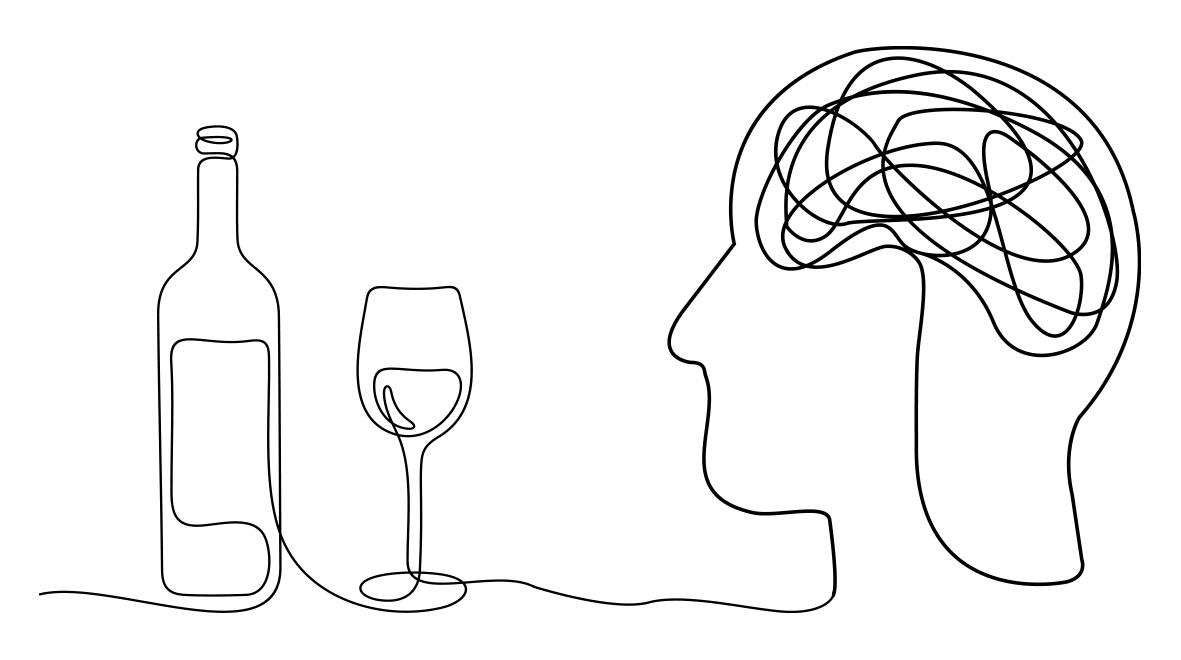
With reports of a spike in alcohol sales suggesting that many are turning to alcohol during these unprecedented times, PhD student Emily Palmer is conducting a survey to find out more about alcohol consumption and the potential public health consequences.
I blink my eyes open. Head is throbbing, suddenly I realise how thirsty I am and reach for the glass of water on my bedside table. Blissful saviour. Then slowly, the blurry memory of uncorking yet another bottle of wine swims to the forefront of my mind. This is my experience of being hungover.
Throughout my teenage years, hangovers were a ritualistic reprimand for a failure in self-control. However, throughout my studies – first in biomedical science and then neuroscience – I began to learn more about the science of the hangover phenomenon. My interest started with a project in my undergrad degree focusing on alcohol. Alcohol in the context of intoxication and addiction is widely researched, and there is no shortage of published papers. I was fascinated to learn how this widely used, socially acceptable drug ravages the brain and body.
The more I looked into alcohol as a research topic, the more I noticed a gap in our understanding; what was happening when the alcohol left our bodies and how does it cause the unpleasant symptoms that I am only too familiar with. This line of enquiry led me to develop my PhD research question: What is the underlying pathology of a hangover? I decided on a translational approach looking first in preclinical studies focusing on how the brain tissue of mice was altered during hangover and correlating this with changes in behaviour. I also wanted to see if these findings could translate to humans and look at establishing a laboratory-induced hangover in a healthy population. I had almost finished the pre-clinical investigations and was excited to start testing healthy volunteers earlier this year. Then lockdown happened.
Initially I was disappointed at having to delay my study. Then, I thought about the unprecedented global scale at which lockdown has forced a change in our social behaviours. The removal of these social norms and common drinking occasions such as weddings, parties and sports events will undoubtably have a dramatic impact on how alcohol is being consumed. When researching the topic, I came across a paper that predicted COVID-19 would lead to the increase in alcohol and substance use disorders amongst other mental health illnesses (Holmes et al). I already knew from media reports that UK alcohol sales had jumped 22% in March of this year (McKevitt, 2020). The simultaneous increase in levels of anxiety due to the global pandemic had the capacity to increase levels of problem drinking or change attitudes towards consumption.
I therefore set about developing a survey (with the help of my team) with the aim of understanding how these unprecedented times are affecting alcohol consumption, motivations and hangovers. I hope the findings will provide valuable insights to potential public health risks as a consequence of these global pandemic interventions. The data from this survey will improve our understanding of the impact of COVID-19 on patterns and health outcomes of alcohol consumption.
Please spare a few minutes to participate:
Contribute to a study of the impact of COVID-19 on alcohol consumption, motivation to drink and hangovers with this 20-minute anonymous survey: https://hangover.cognitron.co.uk
Emily Palmer is a PhD student working with Professor Anne Lingford-Hughes and Dr Magdalena Sastre at Imperial’s Department of Brain Sciences.